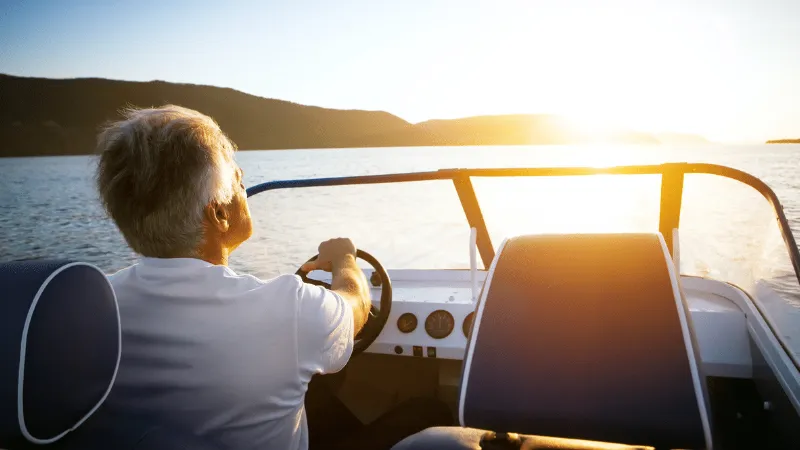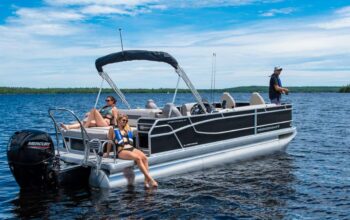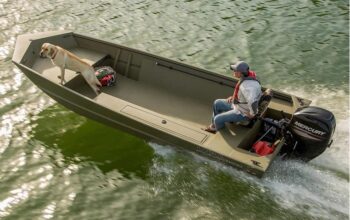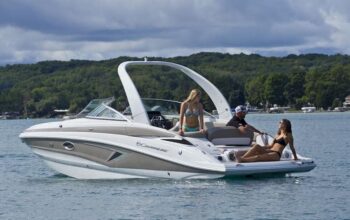Do you have any questions about whether a driver’s license is required to operate a boat? So, do you need a license to drive a boat?
It depends. The laws governing recreational vessels are unique to each nation and can change from state to state. A certificate of competency is required in some nations in order to operate any vessel, while in others it is possible to operate a small motorboat or sailboat without a license.
To thoroughly address the query, let’s examine specific local regulations. The USA is discussed below.
Table of Contents
What Exactly is a Boating License?
That’s a good question, and this is where many people actually get perplexed. To be clear, the proper term is “boater education certificate,” which is often referred to as — you guessed it — a “boating license.” A boater education certificate merely shows that you have finished and passed a recognized boating safety course and are prepared to navigate the seas.
A boater education card (also known as a certificate) is *technically* not regarded as a boating license because it never expires and never needs to be renewed.
You see, all you actually need to operate safely and legally on both state and federal waters is a boater education. This makes a lot of sense, especially when you consider how different operating a boat on the water is from operating other motor vehicles like your car. Additionally, having completed a boater education course can typically result in fantastic insurance discounts.
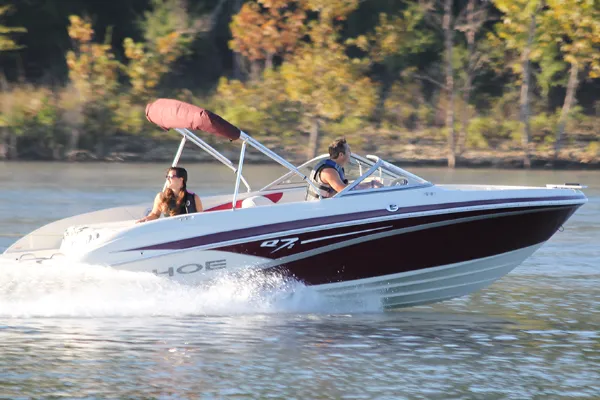
Do You Need a Boat License in the United States?
Things are pretty complex in the United States. Depending on the age of the person driving the boat, each state has very specific regulations. The prerequisites for each state are compiled below.
The following states require a Boater Education Card or license for:
Alabama: any boater older than 12
American Samoa: PWC operators 18 and under
Arkansas: anyone born on or after January 1st, 1986
California: anyone will need one by 2025
Connecticut: any resident who uses a boat more than 60 days a year
Delaware: anyone born on or after January 1, 1978
Florida: anyone born on or after January 1, 1988, to drive a vessel over 10 hp
Georgia: anyone born on or after January 1, 1998 to operate a motorboat
Hawaii: everyone
Idaho: anyone renting a PWC
Illinois: anyone born on or after January 1, 1998 to drive a vessel over 10 hp
Indiana: anyone over 15 who don’t have an Indiana driver’s license
Iowa: people 12-17 who operate a boat over 10 horsepower or a PWC
Kansas: anyone under 21
Kentucky: children 12-17 years old to operate a vessel over 10 hp unsupervised
Lousiana: anyone born on or after January 1, 1984 to drive a boat over 10 horsepower
Maine: people over 12 who drive a boat with over 10 hp unsupervised
Massachusetts: anyone 12-16 years old under no supervision
Michigan: people born after June 30, 1996
Minnesota: teens 12-17 to operate a motorboat over 25 horsepower
Mississippi: people born on or after June 30, 1980
Missouri: anyone born on or after January 1, 1984
Montana: teens who are 13 and 14 must be accompanied or pass a course
Nebraska: anyone born after December 31, 1985
Nevada: people born on or after January 1, 1983, to drive motorboats over 15 hp
New Hampshire: people 16 and over to drive a boat over 25 horsepower
New Jersey: all power vessel operators
New Mexico: people born on or after January 1, 1989
New York: anyone born on or after May 1, 1996
North Carolina: anyone born on or after Januay 1, 1988 to drive vessels over 10 hp
North Dakota: anyone accompanying teens 12-15 on a vessel with more than 10 hp
Northern Marian Islands: everyone
Ohio: people born on or after January 1, 1982 to operate a boat with more than 10 hp
Oklahoma: anyone 12-15 years old to drive a vessel over 10 hp
Oregon: anyone over 16 operating a powerboat with more than 10 hp
Pennsylvania: boaters born after January 1, 1982, to operate boats over 25 hp
Puerto Rico: anyone born after July 1, 1972
Rhode Island: anyone born after January 1, 1986 to operate a vessel over 10 hp
South Carolina: people younger than 16, to operate a 15hp vessel unsupervised
Tennessee: residents born after January 1, 1989
Texas: anyone born on or after September 1, 1993 to drive a motorboat over 15 hp or a sailboat over 14ft
Utah: people 12-17
Vermont: anyone born on or after January 1, 1974
Virginia: everyone
Washington: anyone to operate a vessel 15 hp or more
West Virginia: anyone born after December 31, 1986
Wisconsin: people born on or after those older than 16 on January 1, 1989.
Recreational boaters need a Boating Safety Certificate in:
District Of Columbia
Colorado (14 and 15-year-olds only)
Maryland (anyone born on or after January 1, 1972).
Recreational boaters don’t need a license or Boater Education Card in:
Alaska
Arizona
Guam
South Dakota
Virgin Islands
Wyoming.
Other States will recognize a Boater Education Card, license, or Boating Safety Certificate that you receive from the State in which you currently reside. Consequently, you can use a single card to rent boats wherever you are and travel the entire country. Cards for boater education are valid forever.
This is just a brief summary – remember to check the up- to-date full list of requirements on your state’s official website for transport.
Carry It With You
Like a driver’s license, it’s required that you carry your Boater Education Card with you while operating your vessel, just in case an enforcement officer needs to inspect it. Don’t be caught cruising without your card, I assure you!
What You Need to Learn to Get Your Boating License
Though specific details can vary from state to state, overall, you’ll need to learn three main categories when testing for your boating license (certificate):
Boat Safety
It should go without saying that safety is paramount whenever operating any kind of vehicle, be it a car or a boat. The boating safety category will put an emphasis on being ready for mishaps and emergencies, understanding when to perform maintenance on your watercraft, and following the right operating procedures when using it regularly.
Personal Safety
You need to learn how to take care of yourself and others in emergency situations in addition to knowing how to keep a safe environment on your watercraft.
You will gain a basic understanding of how to handle conditions like hypothermia, carbon monoxide poisoning, and other potentially fatal health risks that may arise while out on the water in personal safety.
Best Boating Practices
You must research “best practices” in addition to knowledge pertaining to safety.’ This topic can include a variety of topics, such as common boat terminology, the meaning of buoy indicators, how to handle boat-to-boat contact, and more. Simply put, these safety precautions and boating regulations aid in avoiding needless mishaps.
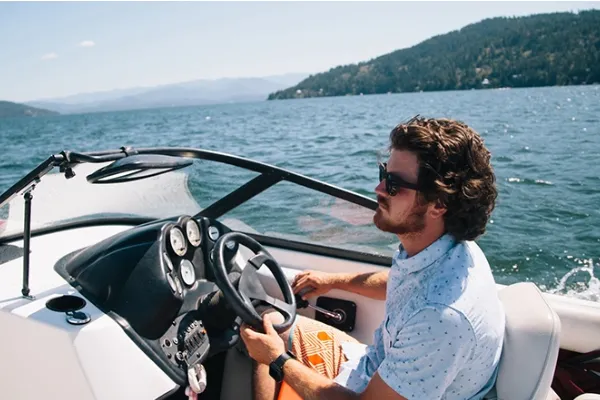
Boats You Can Drive Without a License
A boating license is impossible to obtain. Never fear! Here are a couple of “boats” you can drive without a license:
Yacht Pool Float
No problem if you lack a license! With the recognizable FUNBOY Yacht Pool Float, set sail. On the sexiest and most streamlined float of the season, put your feet up and unwind. You won’t want to miss this ride because it has a ridiculously comfortable daybed for two people, two drink holders, and a double-reinforced front cooler that you can fill with ice and all of your favorite summertime drinks.
Mega Yacht Pool Float
This summer, you can actually float your Mega Yacht pool float and moor it to your very own Dayclub while your Private Jet waits to take off from the pool.
The FUNBOY X Bark Yacht Dog Float, which has been designed to give you and your dog the best poolside experience, is a great addition, but don’t forget about your best furry friend. Never again go out on the water without your furry friend!
Inflatable FUNSKI Pool Float
The FUNBOY’s Inflatable FUN SKI Pool Float, the hottest float of the summer, will let you ride the waves! You wouldn’t believe you were riding in a stationary PWC because this life-size float makes it look so fast. The FUN SKI is a one-of-a-kind float that is guaranteed to make you smile from ear to ear. It is completely stable, whether you are lying down to enjoy the sun or straddling for the ultimate selfie. Grab a friend and two, and race the seas! Loser buys drinks. 😉
Be Responsible
If you’re found to be boating recklessly, your privileges can be revoked in the same way that your driver’s license can be suspended. Some boating offenses include failure to report an accident and boating while intoxicated. Check the laws in your area before you hit the water.
FAQs
Do You Need a Boating License?
You might need to obtain a boat driving card for the region in which you will be operating, depending on where you will be boating.
How Old Do You Have to Be to Drive a Boat?
There is no set age requirement for operating a boat, and many states have minimum learning age requirements as low as 10.
How Old Do You Have to Be to Rent a Boat?
Another query whose significance is greatly influenced by where you are is this one. Many locations will have boat driving regulations that might not apply to renting, which might have entirely different restrictions.
Do You Need a Boating License to Rent a Boat?
If the state requires one, you will need a license to operate a boat, and it’s a safe bet that they will check that before completing the rental if they do.
Read about

